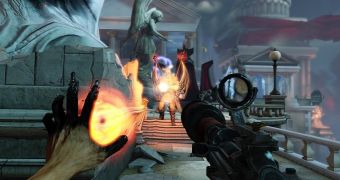BioShock and BioShock Infinite are games that have left a lasting mark on the way we regard storytelling in the medium, and their creator's decision to close the studio in order to focus on something different, on smaller projects, left many confused.
Now Ken Levine sheds some light on some of the reasons behind his decision, while also sharing his mind regarding how games have evolved and how modern expectations of the gaming audience are very different from what they were a few years back, especially when it comes to violence, a mainstay of game design.
"I think the conversation in the games space has changed a little bit. I think people used Infinite as a launching point to talk about the changing nature of games and can you make successful games that don't have violence in video games," the dev tells NPR's All Tech Considered.
"I think the reaction to the violence is more an expression of people building confidence in the industry's ability to express itself in more diverse fashions," he explains.
Some veteran developers who worked on BioShock announced a narrative-driven game called The Black Glove a while back, which has a pretty interesting premise concerning time travel and altering the past in order to influence the present, as well as involving some pretty weird performance art, supported by the artist responsible for the creation of BioShock's Andrew Ryan, Sander Cohen, the Splicers, and the Boys of Silence.
Ken Levine shares that now, more than ever, the industry is free from the constraints of mass appeal and having to follow a tried and true formula, and the playing field is more open to experimentation than ever, as evidenced by massive hits that garnered both critical as well as community acclaim, such as Papers, Please and Gone Home, titles that forgo player-inflicted violence in favor of appealing to more complex areas in our brains.
He also thinks that the advent of indie development and the wealth of publishing platforms that allow video game makers to focus on creating products for targeted audiences instead of having to find a common denominator is a boon for creativity and will produce even more artistically mature titles.
"I think now, we have a little more confidence that, especially when you don't have to appeal to eight or ten million people, when you can just digitally distribute, you can really try to have a 1-to-1 interaction with a smaller, more dedicated fan base and give them the thing they want. You couldn't do that 20 years ago when I started," Levine explains.

 14 DAY TRIAL //
14 DAY TRIAL //